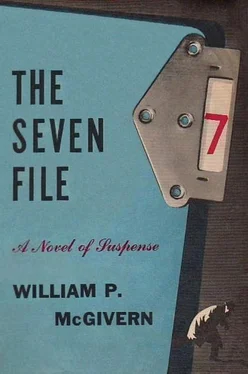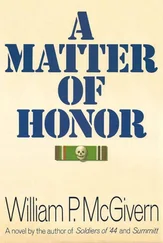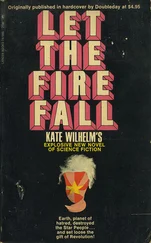William McGivern - The Seven File
Здесь есть возможность читать онлайн «William McGivern - The Seven File» весь текст электронной книги совершенно бесплатно (целиком полную версию без сокращений). В некоторых случаях можно слушать аудио, скачать через торрент в формате fb2 и присутствует краткое содержание. Город: New York, Год выпуска: 1956, Издательство: Dodd, Mead & Company, Жанр: Криминальный детектив, на английском языке. Описание произведения, (предисловие) а так же отзывы посетителей доступны на портале библиотеки ЛибКат.
- Название:The Seven File
- Автор:
- Издательство:Dodd, Mead & Company
- Жанр:
- Год:1956
- Город:New York
- ISBN:нет данных
- Рейтинг книги:4 / 5. Голосов: 1
-
Избранное:Добавить в избранное
- Отзывы:
-
Ваша оценка:
- 80
- 1
- 2
- 3
- 4
- 5
The Seven File: краткое содержание, описание и аннотация
Предлагаем к чтению аннотацию, описание, краткое содержание или предисловие (зависит от того, что написал сам автор книги «The Seven File»). Если вы не нашли необходимую информацию о книге — напишите в комментариях, мы постараемся отыскать её.
The Seven File — читать онлайн бесплатно полную книгу (весь текст) целиком
Ниже представлен текст книги, разбитый по страницам. Система сохранения места последней прочитанной страницы, позволяет с удобством читать онлайн бесплатно книгу «The Seven File», без необходимости каждый раз заново искать на чём Вы остановились. Поставьте закладку, и сможете в любой момент перейти на страницу, на которой закончили чтение.
Интервал:
Закладка:
“You’re wrong, son.”
“That’s my privilege then. Freedom includes the right to be wrong.” Dick Bradley turned suddenly on Crowley. “You heard me? We don’t want you here, we don’t need you.”
It would be nice if he could win this time, Crowley thought. But this wasn’t a game of bean-bag. This time he couldn’t win. “I’m sorry,” he said.
“I’m telling you to clear out,” Bradley said, his voice rising shrilly.
“We’re not a catering service,” Crowley said. “You don’t get the FBI through an employment agency. We’re law officers, and a federal law has been violated. That’s why we’re here. That’s why a hundred men and a million dollars’ worth of equipment is standing by — to get your baby back home.”
Bradley tried to find an answer to this, but finally turned away with a dispirited shake of his head. There was nothing to say. nothing to do; his father’s decision would stand. This had been the pattern of his life.
In the silence that followed the chimes from the front door knocker sounded clamorously through the house. Crowley glanced at his watch: it was eight-thirty. “Mail?” he asked Bradley.
“Yes, yes,” Bradley said, already moving toward the foyer. His father started after him but Crowley caught his arm. “No point meeting the mailman in a group. It might give him something to wonder about.”
“I see... yes, of course,” the old man said, and there was a strange humility in his voice.
Dick Bradley returned with a bundle of bills, letters and magazines, but he was obviously too nervous to sort through them; his hands were trembling so badly that several pieces of mail slipped through his fingers. Crowley took the stack from him and retrieved those that had dropped to the floor.
He discarded bills and magazines quickly, and finally came to it, a cheap plain envelope with the name Bradley printed on it in block capitals. As he opened it he noted automatically that it had been posted in the city the night before. The message was also in block capitals, on a sheet of ruled, copybook paper. Crowley read the message aloud: “When you have the money in the house, close the Venetian blinds on the middle window in the front room upstairs from twelve to two p.m. The little girl is still fine.”
That was all.
Bradley was watching him with an expression of strained, haggard hope. “We’ve got the money,” he said. “There’s no need for any delay.”
“That’s right. We’ll follow these instructions to the letter.” Crowley turned and walked quickly into the study. He had two items to report to the Inspector: this note, and the fact that a telephone repairman had gone through the Bradleys’ house three weeks ago last Thursday...
But West didn’t get Crowley’s message until nine o’clock. He had spent the early hours of the morning driving through the Bradleys’ neighborhood, marking points of surveillance, checking the directions of traffic and familiarizing himself with the look and feel of the streets. When he returned Roth was standing at his desk, and the Inspector knew from his expression that something was up.
“Crowley called a half hour ago,” Roth said. “The second note arrived with the regular mail.” He handed West the memo sheet on which he had written the kidnap message.
West read it through, frowning faintly. “From twelve to two the streets will be crowded,” he said finally. “Anything else?”
Roth told him of the telephone repairman who had been at the Bradleys’.
“You’ve checked with the telephone company?” West asked him — but it was more a statement than question.
Roth nodded. “They’re looking up their records.”
West pushed his hat back on his forehead, a gesture that seemed curiously out of place with his usual precision and exactness. He hadn’t been to bed yet but there was no evidence of fatigue in his face; his color was fresh and his eyes were alert and clear. Around him work went on swiftly and efficiently; a half dozen agents sat at desks that fanned out from his command post. They were running cautious checks on individuals and families living in the Bradleys’ block on Thirty-first Street, using tax records and credit services as sources of information. From other desks the clatter of clerks’ typewriters almost drowned out the traffic noises drifting up from Broadway.
West stood facing a long table set in the middle of the headquarter’s area and bounded by irregular ranks of desks and filing cabinets. On the table, gleaming under the bright overhead lights, was a small-scale sketch of the Bradleys’ block done in black ink on a huge square of white cardboard. Spread around it were glossy prints of the adjoining area — doorways, shops and stores, parking lots, the church opposite the Bradleys’, the warehouse at Second Avenue.
West seemed unaware of the disciplined tension around him; he was studying his watch, a faint frown darkening his lean features. Finally he said to Roth, “Okay, we’ve got a little under three hours to work in. Starting at noon I want motion pictures taken of the street and sidewalk in front of the Bradleys’. Every car, every cab or truck that goes through there, every man, woman, child or dog that walks by — we’re going to have them on film. It’s a long shot. The kidnapers don’t have to check personally to see if the blinds are closed. They could hire a boy to do it for a quarter. They could drive by in a cab. Or they might be watching from a window across the street. It’s a long shot, but we’ll take it. Now let’s see where we can put cameras.”
The two men bent to study the small-scale sketch of Thirty-first Street that covered almost half of West’s desk. Finally Roth put his big forefinger on the church that faced the Bradleys’. “How about that?” he said, glancing sideways at West. “From the tower we’d have good coverage.”
West nodded slowly. “That’s okay. And Crowley’s uncle lives on the opposite side of the street. We can put another camera there.” Turning, he waved for a clerk. “Get Brunner in the photo lab. Tell him to come up right away.”
“Yes, sir.”
“There’s a job I want you to start on,” West said to Roth. “The wife, Eleanor Sims. She’s from Chicago, and she’s worked here and in Milwaukee. Now she’s with an ad agency, Masterson and Thomas. I want a thorough check on her. Associates, family, men she’s dated, girls she’s shared apartments with, everything. Find out what agencies used to have the accounts she’s working on now. See about business feuds, ad people who might have her job if she were out of the picture. And keep working on the Bradleys. Who inherits that baby’s share of the old man’s money. That’s way out in left field, but check it anyway. And I want a run-down on every grocery boy, every deliveryman, every salesman who makes regular stops at the Bradleys’. Crowley gave me the list. Run it down.”
Roth had been making quick notes on a memo pad. “Right. I’ll get at it.” As he turned away an agent stood quickly and walked to the Inspector’s table. “The telephone company says they had no calls for service on the Bradleys’ phone. It wasn’t their man who was in the house.”
The Inspector nodded and sat down on the edge of his desk. He stared out across the long, busy room, at the men fishing patiently for information, at the rows of girls hammering away at typewriters. The comers of his eyes began to narrow slightly; it was an unconscious reaction, a reflex as old as man himself; it was the hunter’s reaction to the first sign of his quarry.
Eleven
“Is the baby feeling better?”
“You heard the nurse, didn’t you?” Grant’s tone was abrupt and irritable. “The baby’s fever went up, she thinks. So how could the kid be better?”
Читать дальшеИнтервал:
Закладка:
Похожие книги на «The Seven File»
Представляем Вашему вниманию похожие книги на «The Seven File» списком для выбора. Мы отобрали схожую по названию и смыслу литературу в надежде предоставить читателям больше вариантов отыскать новые, интересные, ещё непрочитанные произведения.
Обсуждение, отзывы о книге «The Seven File» и просто собственные мнения читателей. Оставьте ваши комментарии, напишите, что Вы думаете о произведении, его смысле или главных героях. Укажите что конкретно понравилось, а что нет, и почему Вы так считаете.











